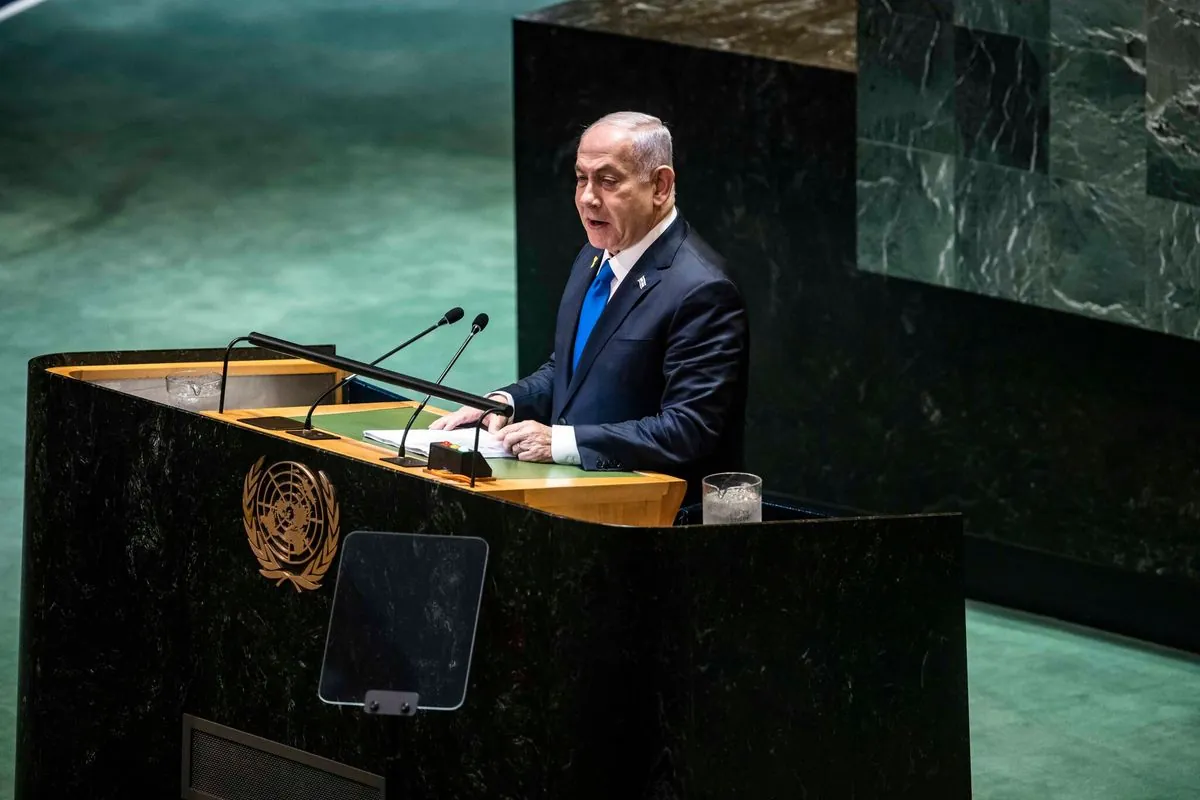Benjamin Netanyahu, Israel's Prime Minister, addressed the United Nations General Assembly on September 27, 2024, emphasizing his nation's commitment to peace while defending its actions against what he termed "savage enemies." The speech came amid ongoing tensions in the region, particularly along the Israel-Lebanon border.
Netanyahu stated, "Our nation faces existential threats from those seeking our annihilation." He emphasized Israel's right to self-defense against these adversaries, drawing attention to the country's current military engagements on multiple fronts.
The Prime Minister's address highlighted Israel's stance against Iran, which he identified as the primary instigator of regional instability. "Israel's capabilities extend throughout the Middle East," Netanyahu asserted, emphasizing the nation's military readiness.
The speech occurred against the backdrop of continued Israeli operations targeting Hezbollah positions in southern Lebanon. These actions have raised concerns about potential escalation into a broader regional conflict. The United Nations Interim Force in Lebanon (UNIFIL), established in 1978, continues to monitor the volatile border area.
Netanyahu rejected international calls for a ceasefire with Hezbollah, a decision that has drawn criticism from various global actors. The ongoing airstrikes in Lebanon have resulted in numerous casualties, further complicating the geopolitical landscape.
Regarding the situation in Gaza, Netanyahu outlined conditions for ending the conflict, including the surrender of Hamas, disarmament, and the return of hostages taken during the October 7, 2023, attack on Israel. This attack marked a significant escalation in the long-standing Israeli-Palestinian conflict.
"We are winning."
The Prime Minister's speech at the UN, an organization Israel joined in 1949, reflects the complex history of the region. Since the Six-Day War in 1967, which resulted in Israel occupying the West Bank and Gaza Strip, the area has been a focal point of international diplomacy and conflict.
Despite ongoing tensions, there have been efforts towards peace in the region. The Oslo Accords of 1993 aimed to establish a framework for Israeli-Palestinian peace, while more recently, the Abraham Accords of 2020 normalized relations between Israel and several Arab states.
The international community, including the UN Security Council, has passed numerous resolutions regarding the Israeli-Palestinian conflict. The International Court of Justice has also issued advisory opinions on related matters.
As the situation continues to evolve, the role of international organizations like the United Nations Relief and Works Agency (UNRWA), which provides assistance to Palestinian refugees, remains crucial. The ongoing conflict underscores the complex interplay of historical, political, and humanitarian factors in the Middle East.
